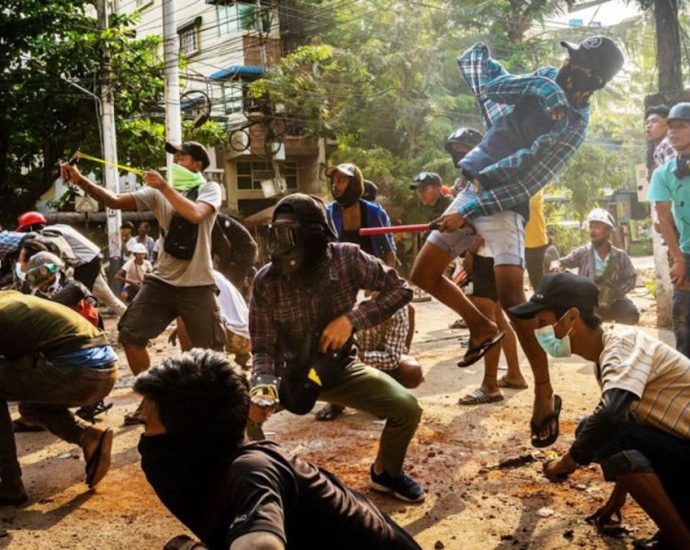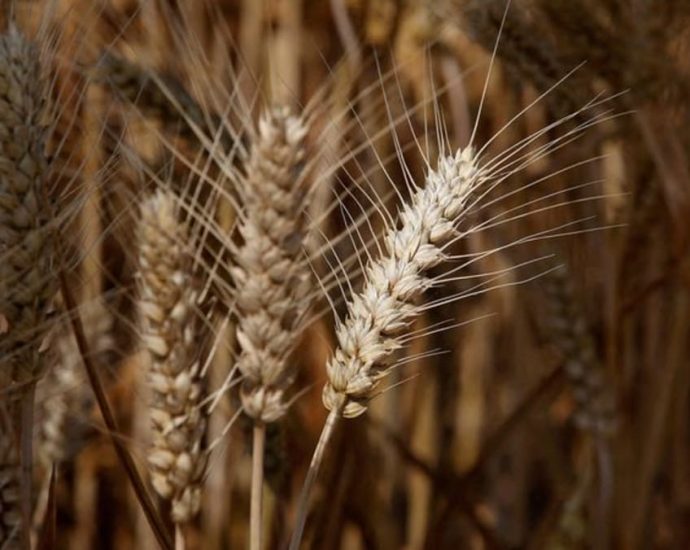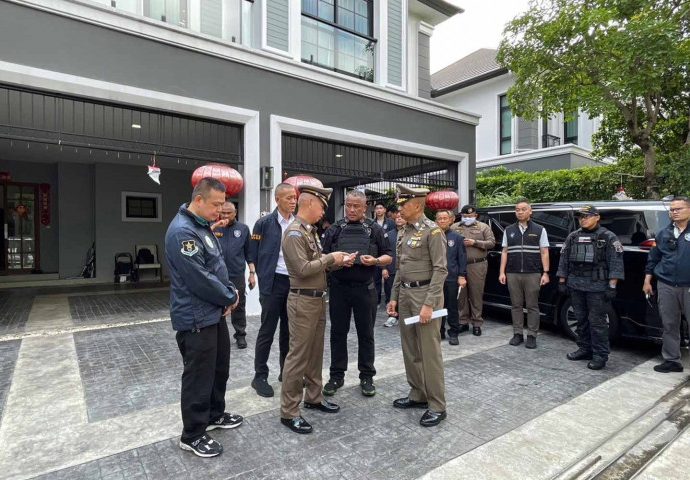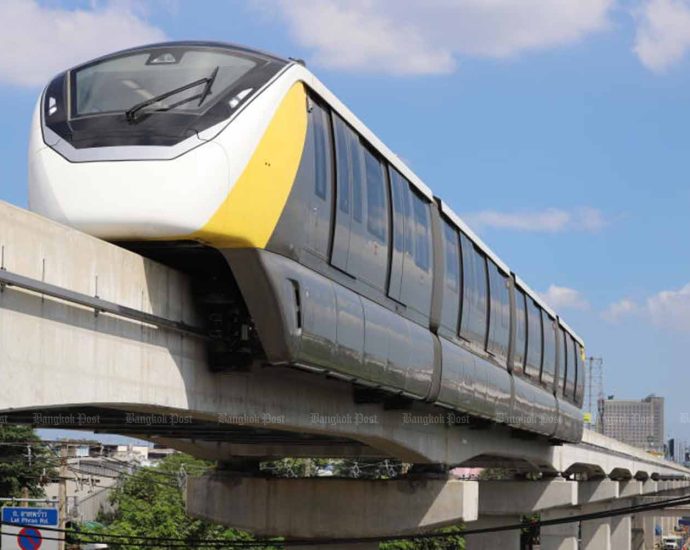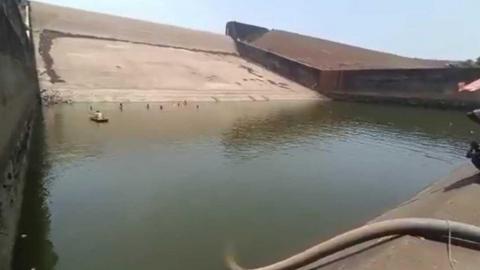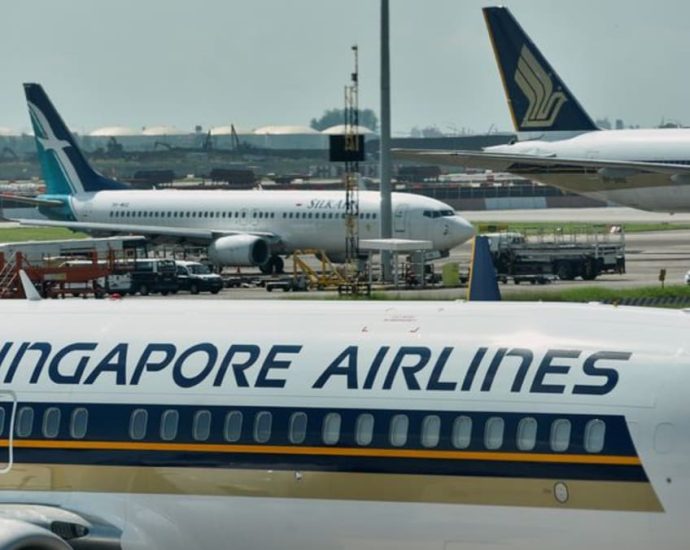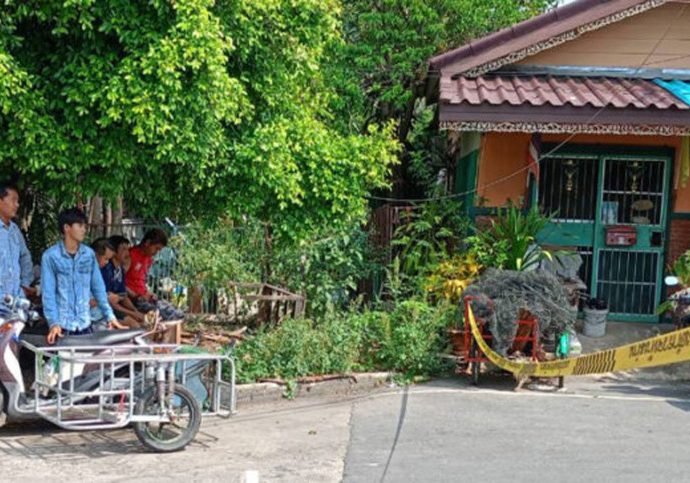South Korea experts say more study needed on Japan’s nuclear water plan
SEOUL: South Korean nuclear safety experts who visited Japan’s wrecked Fukushima nuclear power plant said on Wednesday (May 31) that detailed analysis was needed to verify Japan’s plan to release tonnes of contaminated water from it into the sea. The Fukushima Daiichi nuclear station, about 220km northeast of Tokyo, wasContinue Reading
Myanmarâs resistance: What are we actually fighting for?

It has been more than two years since Myanmar’s army staged a coup. The country has since descended into a dangerous spiral of violence, dire economic hardship and a deepening humanitarian crisis.
As of May, more than 3,500 people have been killed and more than 22,000 arrested, and around 1.8 million remained displaced across the country. A staggering 17.6 million people in total are predicted to be in humanitarian need within this calendar year.
The costs have been immeasurable – in terms of lives lost, livelihoods and infrastructures destroyed, and psychological trauma inflicted. Despite that, the people of Myanmar continue to resist and actively fight against attempted full-blown military rule, once again.
They do this through making difficult decisions in their daily lives. For instance, whether or not they should join (or remain a part of) the Civil Disobedience Movement. Whether or not they should send their children to junta-run schools. Or whether or not they should attempt to flee their homeland only to be face exploitation elsewhere.
Every day, individuals, families and communities across the country have been painstakingly making their way through this post-coup nightmare. In the meantime, the resistance movement as a whole – the “Spring Revolution” – has undergone a transformation in its own right.
Originally framed as a non-violent movement, the revolution has become increasingly heavily militarized. Not only is the use of violence – by all sides – now completely normalized. It is also routinely encouraged and even celebrated.
It is therefore urgently necessary for all of us to reflect on this trajectory of the resistance movement and pose two fundamental questions about its very purpose. Who and what are we fighting against? And who and what are we fighting for?
Simply being ‘anti-coup’ is not enough
Myanmar’s Spring Revolution is often described as an anti-coup movement, referring to the disastrous military takeover on February 1, 2021. If we took this designation literally, it would suggest that this is a movement against the current military junta – the so-called State Administration Council – its leader, Senior General Min Aung Hlaing, and most probably also the institution of Myanmar’s army as a whole.
Consequently, it could also mean that “reversing” the coup would potentially be enough to satisfy the demands of such a movement. As if simply rewinding time to the pre-existing status quo in the country.
This is highly problematic. As we have already argued in a previous piece on Asia Times, going back to the pre-coup times in Myanmar would mean continuing to recognize the military-drafted 2008 constitution, under which the contested 2020 general elections had been held. However, the public has since widely rejected this constitution and the Committee Representing Pyidaungsu Hluttaw has formally abolished it.
In addition, the political path Myanmar was on before the coup had serious shortcomings. The decision-making power continued to be centralized. Women, ethnic and religious minorities were still systematically marginalized. Freedom of speech was receding. Political leaders and the general public struggled to accept that genocide had most probably taken place in their beloved homeland.
Many of these views have drastically shifted since the coup. It would be a shame to “undo” this change, since it represents the coup’s only silver lining.
Finally, having a clear common enemy has definitely brought Myanmar’s diverse political actors together more than ever before. However, this is not sufficient for the Spring Revolution to succeed. Long-term alliances need to be built on shared values and a common vision for the country, rather than simple opposition to those who stand in the way of Myanmar becoming more peaceful, democratic and just.
Need to practice democratic values
Alternatively, Myanmar’s Spring Revolution is frequently referred to as a pro-democracy movement. But what does that really mean? Most of us would agree that being for democracy requires adherence to democratic values, such as accountability, transparency and pluralism, as well as respect for human rights.
Applying this definition on to the resistance movement, we see a lot of space for improvement. One simply cannot be calling for democracy and, at the same time, be actively suppressing or avoiding a critical examination of one’s own decisions and procedures, or even accusing those with critical views to be siding with the enemy.
One cannot be talking about democratic values as long as one is not ready to accept – or at least engage with – diverse opinions and perspectives. Importantly, one cannot be fighting for democracy while inciting violence, torturing prisoners of war or targeting unarmed civilians.
Of course, having to face an institution with absolutely no limits as to what kind of damage it inflicts on its own country and the people in it is indeed challenging. What is the right course of action vis-à-vis armed forces that have never adhered – and surely never will adhere – to the country’s laws, let alone international humanitarian law or any democratic principles whatsoever?
Still, in the middle of this moral dilemma, it is crucial to remember that the Myanmar army’s vicious practices are exactly why the revolution exists – and has existed for many decades – in the first place, and why we in the movement need to reject these practices ourselves. We must not turn evil in the process of fighting evil.
Instead, any and all political actors that like to consider themselves a part of Myanmar’s pro-democracy movement should be ready to be held to democratic standards and take full responsibility in case they fail to do so. A dignified revolution is not a revolution in which no one makes mistakes. What makes a dignified revolution is handling those who make mistakes with transparency and decisiveness.
Pro-federalism: the necessary step further
Let us imagine that suddenly, from one day to another, Myanmar was on a path toward democracy. In this scenario, it would be crucial to ensure that the newfound political stability lasts long enough – at least a few election cycles – for democracy really to take root in the country. For it not only to take root, but actually to thrive, federalism is absolutely necessary.
Only through federalism would the country’s member states be able to attain their sovereignty and self-determination. Only through federalism would genuine power-sharing and equality finally replace centralized structures dominated by one party and one set of political, cultural and religious beliefs. This way, federalism in Myanmar would offer something for all its diverse communities and areas, not just a selected few.
So how do we go about establishing federalism in Myanmar, especially in these revolutionary times?
Waiting for an agreement on and implementation of federal principles at the top level is one approach. Fortunately, it is not the only one. Instead, we can focus on building local government and strengthening local governance institutions in areas of the country where this is possible and at least relatively safe.
Many of these structures have been in existence for decades. This is despite having faced enormous obstacles and limited resources, receiving no support from the central state. Enabling and empowering local communities to govern themselves is not only the most practical and effective way to help them instill self-autonomy in their areas. It is also how we can build federalism from the ground up.
The ‘resistance continuum’
Naturally, federalism in Myanmar would not be able to succeed without democracy. To be pro-federalism, one must thus, inherently, also be pro-democracy and anti-coup too. However, belonging to either of the latter two “camps” does not guarantee adherence to federal principles at all.
That is why it is crucial for all of us in the movement – but also international stakeholders working with or supporting its various actors – to be clear about where on this “resistance continuum” they stand.
Our standing is that the resistance movement needs to go beyond its anti-coup or even pro-democracy designations, and become unapologetically pro-federal. We believe that our ability to resist the temptation to resort to violence and inhumane tactics in the name of revenge or political expediency is what will set us apart from the evil that we are fighting.
We also believe that our appreciation of diversity and decision-making based on kindness, generosity and empathy is what will ensure a more peaceful and prosperous life for the future generations.
Yet we also understand that Myanmar’s diverse resistance forces might find themselves on different parts of the resistance continuum. That is OK, as long as our overall direction is the same. We simply ask each and every actor involved in the movement to reflect continuously on their values, approaches and actions.
This way, these can then be communicated and discussed more openly and straightforwardly, which will ensure a fruitful dialogue moving forward – toward a better Myanmar of tomorrow.
Editor’s note: While the authors would prefer to use the name “Burma” for various reasons, they have agreed to adhere to Asia Times style and accept the usage of “Myanmar,” the official United Nations designation (and that of the regime itself).
China’s farm ministry seeks to salvage damaged wheat
BEIJING: China’s agriculture ministry is urging local authorities to speed up the harvesting and drying of damaged grain after heavy rain flooded fields of ripe wheat in the country’s most important growing region. Authorities should send emergency teams to drain water from fields, speed up access by harvesters and mobiliseContinue Reading
Chinese couple arrested for alleged B10bn fraud

A Chinese couple living in a 67-million-baht house in Bangkok were arrested on Wednesday for alleged multinational fraud, with damage estimated at 10 billion baht, the Cyber Crime Investigation Bureau said.
Shaoxian Su, 31, and his girlfriend Keyi Ye, 25, were taken into custody at their house in The Palazzo Srinakarin housing estate, in Prawet district, on Wednesday morning on charges of public fraud and money laundering.
Police from the Cyber Crime Investigation Bureau (CCIB) impounded 1.5 million baht in cash, the title deed for their 67-million-baht house, ownership documents for four condominium apartments in Sukhumvit area worth 128 million baht and 14 Bearbrick dolls also found on the premises.
A CCIB spokesman quoted victims as accusing the couple of using fake online profiles to approach them via social media and enticing them into “investing in digital currencies and assets”. Local victims were in Bangkok and Prachuap Khiri Khan. They told police they lost about 35 million baht to the suspects.
There were about 20,000 similar complaints filed in other countries, including the United States and Britain, believed linked to the suspects’ network. Total damage was estimated at 10 billion baht.
The couple did not have jobs. They often travelled abroad and had purchased Thailand Elite Cards, which made it easier for them, the CCIB said.
CCIB police also raided nearby luxury houses and impounded more assets they believed were linked to the suspects and their alleged crimes.
Yellow Line trial run, free rides from Saturday

The Yellow Line elevated monorail built to serve the Lat Phrao-Samrong route will begin a month-long trial run, with free rides for commuters, on June 3, Mass Rapid Transit Authority of Thailand governor Pakapong Sirikantaramas said on Wednesday.
He said this was agreed on at a meeting of representatives of the Department of Rail Transport and the concessionaire, Eastern Bangkok Monorail (EBM), on Tuesday.
A final inspection to ensure readiness of the system, the train stations and staff will be made on Thursday.
On Friday, the first trial run will be for news media.
On Saturday, the public will be offered free rides from selected stations from 9am-noon and 1pm-5pm. If all goes well, the operating time during the trial will be extended to midnight.
The trial will then continue until the end of June.
Mr Pakapong said EBM must comply with advice from an independent certified engineer for the security system to meet international standards before the line can begin full operations.
The Yellow Line extends for 30.4 kilometres, between Lat Phrao and Samrong, with 23 stations.
Fares were initially set at 14 baht to 42 baht when the concession contract was signed in 2016. They will be adjusted, based on the consumer price index for the previous three months, before the service begins full operations.
Chhattisgarh: India official fined $640 for draining dam to find phone
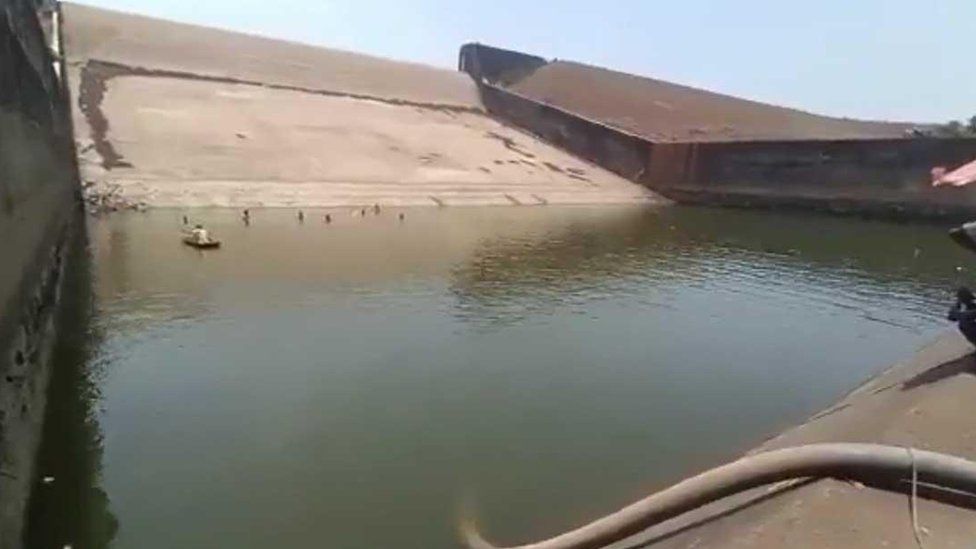 @ramanmann1974
@ramanmann1974An Indian official who made headlines after he drained a dam to retrieve his phone has been fined by the government.
Rajesh Vishwas has been ordered to pay 53,092 rupees ($642; £519) for pumping out millions of litres of water without seeking permission from authorities.
He had dropped the device while taking a selfie and claimed it needed retrieving as it contained sensitive government data.
But he has been accused of misusing his position.
The food inspector dropped his Samsung phone, worth about 100,000 rupees, into Kherkatta Dam in the central Indian state of Chhattisgarh last week.
After local divers couldn’t find the phone, he paid for a diesel pump to be brought in, Mr Vishwas said in a video statement quoted in the media. The pump ran for several days, emptying out thousands of litres of water, but by the time the phone was found, it was too waterlogged to work.
At the time, Mr Vishwas had told the media that he had verbal permission from an official to drain “some water into a nearby canal”, adding that the official said it “would in fact benefit the farmers who would have more water”.
But the authorities suspended Mr Vishwas from his post over the incident. And a few days back, the state irrigation department sent him a letter penalising him for his actions. The BBC has seen a copy of the letter.
It stated that Mr Vishwas had wasted 4.1 million litres of water (880,000 gallons) for his “personal interest” and that he had to pay for the water as well as a penalty of 10,000 rupees for “evacuating water without permission”.
It added that his action was “illegal” and “punishable under Chhattisgarh’s Irrigation Act”.
When first reported, the incident had triggered outrage in the country. Many politicians criticised the official’s actions and said that the water could have been put to better use in a country where several regions face water shortages, especially in the scorching summer months.
BBC News India is now on YouTube. Click here to subscribe and watch our documentaries, explainers and features.

Read more India stories from the BBC:
- Dhoni’s delayed retirement delights cricket fans
- Indian man held for brutally murdering girl in public
- Why prosperity can’t break India’s dowry curse
- A teacher uniting colonial-era divided Indian families
- India police file rioting case against top wrestlers
- Why prosperity can’t break India’s dowry curse

SIA to offer free unlimited Wi-Fi for economy, premium economy class passengers from July
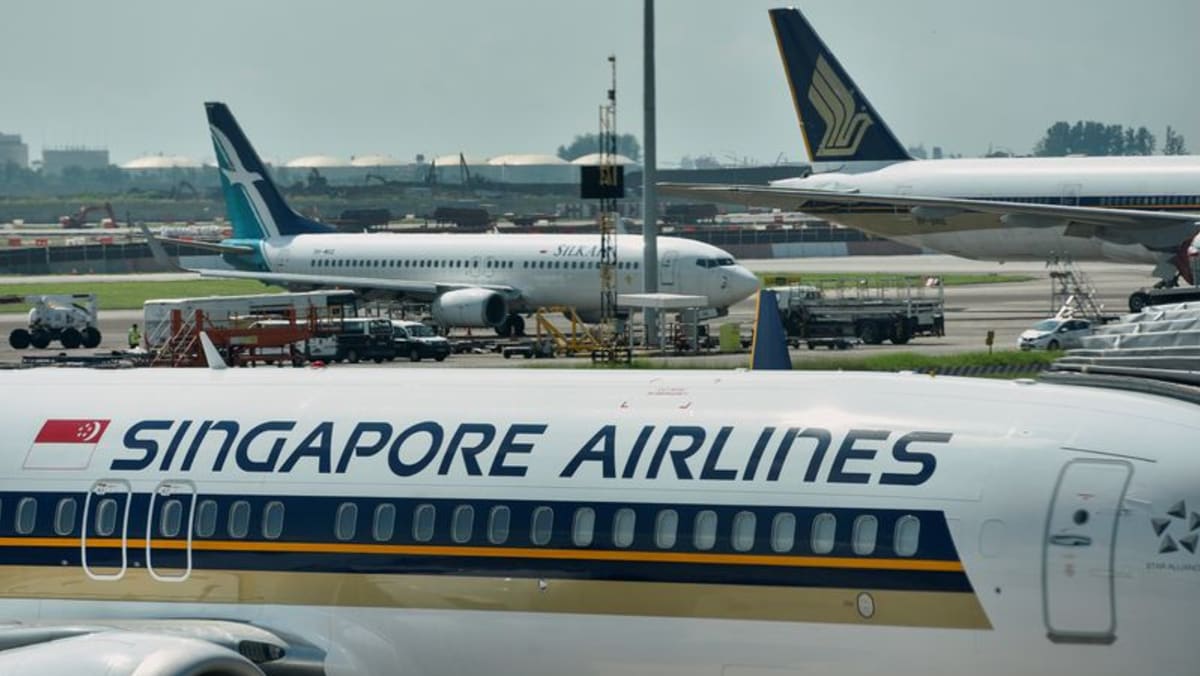
BETTER SEATS, REGIONAL CONNECTIVITY
SIA’s chief executive officer Goh Choon Phong on Tuesday also shared the airline’s plans to improve its offering for passengers.
For instance, there will be better seats across all cabins on the new Boeing 777-9 planes that are expected to be introduced in 2025, he said, adding that this will be an “industry-leading” product when it is launched.
SIA also expanded its network during the pandemic, enabling it to now reach about 80 per cent of its pre-COVID capacity. In comparison, airlines in the Asia-Pacific region as a whole have recovered to just over 50 per cent of their pre-COVID capacity, said Mr Goh.
With SIA subsidiary Scoot’s recent acquisition of the Embraer E190-E2 aircraft that has 112 seats, the budget airline will be able to access “smaller points, particularly in the region”, therefore connecting Singapore and the hub to new places in Southeast Asia.
Reflecting on SIA’s losses during the pandemic’s early days, Mr Goh expressed gratitude for the strong support from shareholders, allowing the company to raise S$15 billion (US$11.1 billion).
He also highlighted SIA’s decision to continue operations to serve its customers and the nation, even though many airlines ceased international operations due to a lack of demand. The airline also continues to honour customer refunds despite the direct impact on its cash reserves.
Adding that SIA’s employees have “taken quite a bit of sacrifice”, not just in terms of a pay cut, he pointed out that travel operations could not have resumed as quickly if not for their readiness.
“Ironically, during that period, many of the ground (staff) were working sometimes even harder. Because we were doing a transformation to really get the organisation ready for the restart, in terms of reviewing the processes, reviewing workflow to ensure that we are even better than before,” he said.
Earlier this month, SIA announced a record annual profit of S$2.16 billion after three straight years of losses. Eligible employees could receive around eight months’ bonus, the airline said.
Illegal breeder who kept 19 dogs in terrace house fined S$9000

SINGAPORE: A self-professed dog lover kept 19 dogs in his terrace house and engaged in illegal breeding, selling one of the puppies for S$9,500 (US$7,017).
Goh Chong Tse, 37, was fined S$9,000 by a court on Wednesday (May 31) for his offences under the Animals and Birds (Dog Licensing and Control) Rules.
He pleaded guilty to five charges, including maintaining his home as a farm without a licence by breeding his dog with another dog, owning dogs without licences, and keeping more than three dogs in a place that was not a licensed dog farm or pet shop.
Another seven charges were considered in sentencing.
The court heard that Goh lived with his wife at 11 Seletar Road from 2019 to about September 2021.
From 2019 to July 2020, the couple owned four dogs – two corgis named Nutella and Waffles, and two shiba inus named Milktea and Pudding.
They bought Nutella and Milktea from a licensed pet kennel, while Pudding was purchased from a seller on Gumtree.
Waffles was a stray that Goh’s wife found. Goh registered Waffles’ licence under his name.
In December 2020, Goh got to know a person named Jermaine Ang. The pair agreed that Waffles would be sired by Ang’s stud dog, Bailey.
They agreed that Waffles would be artificially inseminated, with Ang paying for the insemination. They also agreed that Ang would share 30 per cent of the overall costs and keep one puppy from the subsequent litter.
Waffles gave birth to six puppies in late February 2021. Ang kept one puppy, while Goh and his wife kept four puppies.
The last puppy was sold to someone for S$9,500.
On Feb 9, 2022, officers from the National Parks Board (NParks) acted on information they had received and inspected Goh’s home.
He had moved to a terrace house in Parry Road. During the inspection, the officers seized 19 dogs – most of them corgis.
The officers also found that Goh did not have valid licences to own three of the dogs, named Mantou, Ruffles and Truffles.
The prosecutor sought a fine of S$9,400 for Goh. She said almost all the puppies had discharge, tear staining and poor dental health.
Most of the puppies had dirty coats stained with faeces, and almost half of them had light staining of the teeth and gingivitis, she said.
DEFENCE’S PLEA
Defence lawyer Amarjit Singh asked instead for a fine of S$6,000.
He said his client worked as a chauffeur for private airport transfers before the COVID-19 pandemic broke out, and was also a Grab driver, while his wife was a homemaker.
However, he lost his job during the pandemic and took on various jobs including delivery work and a COVID-19 swabber to make ends meet.
Goh and his wife share a strong affinity for dogs, said Mr Singh.
“His actions were driven by his deep love and affection for his dogs and puppies,” said the lawyer.
He said Goh had a history of anxiety and took solace and comfort in the companionship of his dogs and puppies.
The seizure of his dogs has negatively impacted both Goh and his wife, who self-harmed afterwards, said Mr Singh.
The judge allowed Goh to pay the fine in instalments.
Former houseowner surrenders after killing new owner

The dispossessed former owner of a house who shot dead the new owner at a housing estate in Pathum Thani on Tuesday afternoon surrendered to police later that night.
Decha Phayakkha, 66, gave himself up at 7.54pm, surrendering to local police and a special operations squad that had surrounded the house on Rangsit-Nakhon Nayok Road in tambon Bueng Namrak, Thanyaburi disrict.
Mr Decha was taken to Thanyaburi police station, where he was held in custody.
The suspect allegedly shot dead Kamolporn Donthong, 52, who bought the house from a bank through the Legal Execution Department, when she arrived shortly before 3pm to talk to him about moving out.
Mr Decha refused to move out and allegedly shot her dead while she was in the street outside the house.
Police surrounded the house, where the shooter had holed-up. His daughter was called in to help persuade him to surrender, but he refused.
Around 4.30pm, Pol Col Jirawat Piampinset, chief of Thanyaburi police station, asked the man to lay down his weapon and surrender, but he did not respond. A special operations unit had already been deployed around the house.
About 5.30pm, Mr Decha fired shots from the house as special operations police moved closer. Shortly before 8pm, he agreed to surrender.
On Wednesday, his son and daughter and a lawyer arrived at Thanyaburi police station to visit him.
Pol Capt Sariphong Apiwan, deputy investigation chief at Thanyaburi, said the suspect had become very stressed overnight, but calmed down when his children visited him.
Mr Decha was initially charged with murder, attempting to kill officers on duty and firearms offences.
He would be taken to Thanyaburi Provincial Court, where police would apply to detain him for the first 12-day period of the investigation, Pol Capt Sariphong said.
Wrestlers’ protest: IOC says police action against Indian athletes very disturbing
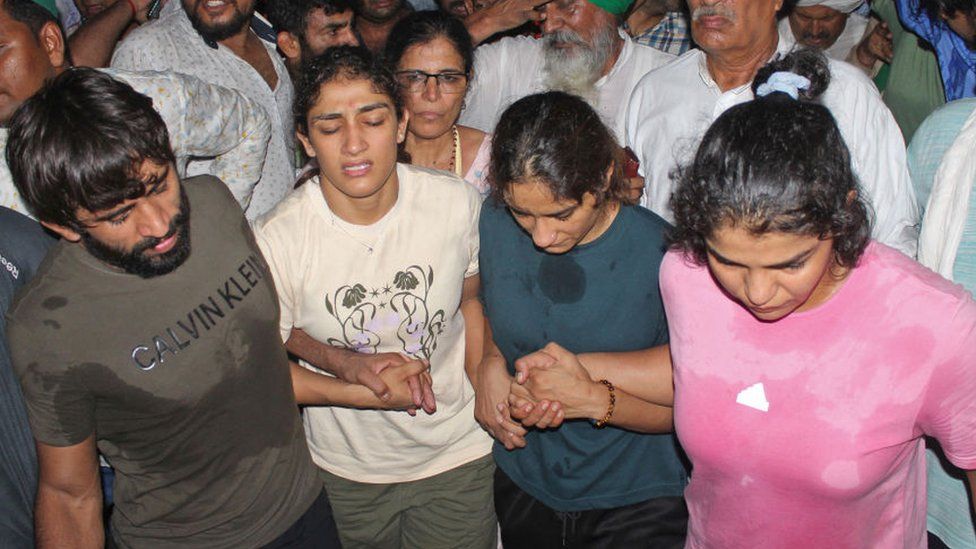 Getty Images
Getty ImagesThe International Olympic Committee (IOC) has condemned the way India’s top wrestlers are being treated during their ongoing protest.
It has also demanded an investigation into allegations that Indian wrestling chief Brij Bhushan Sharan Singh sexually harassed female athletes.
The wrestlers were temporarily detained by police on Sunday as they tried to march to the new parliament building.
They were demanding the resignation and arrest of the federation chief.
Mr Singh, who is also an influential MP from the governing Bharatiya Janata Party (BJP), has denied the allegations and accused the wrestlers of being “politically motivated”.
On Tuesday, he told reporters that the Delhi police was investigating and that they would arrest him if they found anything against him. “Let the investigation take place, it is in the hands of Delhi police,” he said.
Olympic medallists Sakshi Malik and Bajrang Punia and two-time world champion medallist Vinesh Phogat, were among those who were detained and later released by the police on Sunday. The police also filed cases including of rioting against them.
Visuals of the athletes being dragged and carried off in buses went viral, sparking criticism from top athletes and opposition politicians.
In a statement on Tuesday night, the IOC “urged the safety and wellbeing of these athletes” and called for “a speedy conclusion” of the investigation.
It said it had been in close contact with United World Wrestling (UWW) – the international organisation governing amateur wrestling – over the situation.
The UWW also issued a statement on Tuesday saying that it was following “with great concern” the wrestlers’ protests “over allegations of abuse and harassment by the president of the Wrestling Federation of India (WFI)”.
“It expresses its disappointment over the lack of results of the investigations so far,” the statement said and added that the UWW would hold a meeting with the wrestlers to inquire about their safety and “reconfirm our support for a fair and just resolution of their concerns”.
The UWW also said that it might suspend the WFI if its upcoming elections were not held on time.
The wrestlers, who have been protesting for over a month now, had first protested in January but called it off after Mr Singh was stripped of his administrative powers by the sports ministry and the government promised to investigate their complaints.
However, they restarted their protests in April, calling for his arrest.
On Tuesday, the wrestlers had threatened to throw their medals into the Ganges – India’s holiest river. They said they had first considered returning their medals to the president and the prime minister but were disappointed that they had not spoken about the protests even once.
“These medals are our life and soul… We feel there’s no meaning to having these medals around our necks anymore,” they said in a statement.
But they were persuaded by Naresh Tikait, leader of influential farming group Bharatiya Kisan Union (BKU), to not throw their medals yet. Mr Tikait later told reporters he was giving the government five days to take action.
BBC News India is now on YouTube. Click here to subscribe and watch our documentaries, explainers and features.

Read more India stories from the BBC:
- Dhoni’s delayed retirement delights cricket fans
- Indian man held for brutally murdering girl in public
- Why prosperity can’t break India’s dowry curse
- A teacher uniting colonial-era divided Indian families
- India police file rioting case against top wrestlers
- Why prosperity can’t break India’s dowry curse



